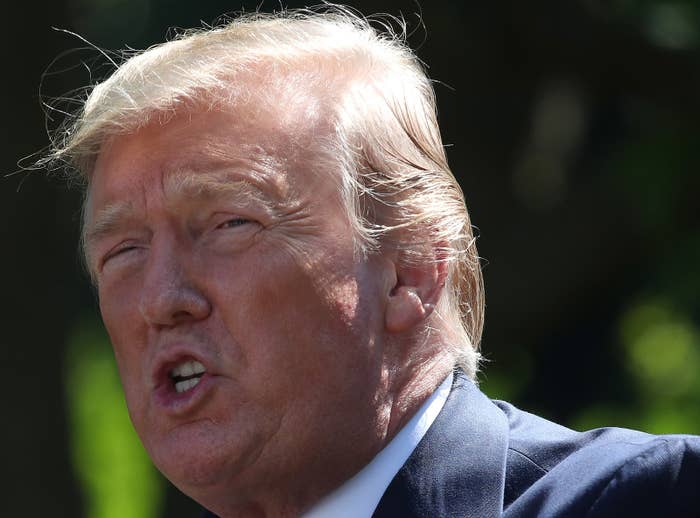
The Trump administration wants to dramatically cut the number of expert panels that widely advise federal agencies on pollution, public health, spending, and planning, according to a White House executive order released late Friday.
There are about 1,000 of these advisory committees — often called "the fifth arm of government" — which act as a reality check on agencies, operating under a 1972 law that makes their deliberations transparent to the public.
"Each agency shall, by September 30, 2019, terminate at least one-third of its current committees," the Friday executive order says. "If the combined total number of eligible committees exceeds 350, an agency may not establish a new advisory committee."
The panels advise on high-profile agency decisions. One at the Environmental Protection Agency, for example, recently questioned estimates of cost savings from allowing more pollution. These panels are found at nearly 50 agencies and departments, involve about 72,000 volunteer experts, and cost around $367 million — total — to run in 2015, according to the Government Accountability Office.
"This kind of wholesale elimination of advisory panels is bad government," Steven Aftergood of the Federation of American Scientists told BuzzFeed News.
"The panels are not expensive to run, and no one has to follow their recommendations," he added. "But they help to inform and enrich the deliberative process. Could that be what the White House objects to?"
The executive order would exempt from the order panels whose primary purpose is to provide scientific expertise to agencies making decisions about the safety of products sold to consumers, such as drug approvals at the FDA.
But the order follows efforts to recast advisory committees at the EPA to include more industry voices and has triggered objections from scientists.
"My view is that although it makes sense to take stock and consider the costs and benefits of advisory committees currently in operation — just as past administrations have — setting arbitrary caps and targets for reduction is difficult to defend if one’s goal is to ensure that government decisions are well informed," public policy expert Stéphane Lavertu of the Ohio State University told BuzzFeed News by email.
"This order seems to prioritize a reduction in administrative expertise as opposed to some concern with reducing government waste."
CORRECTION
The original post misstated the full name of the Government Accountability Office (GAO).
